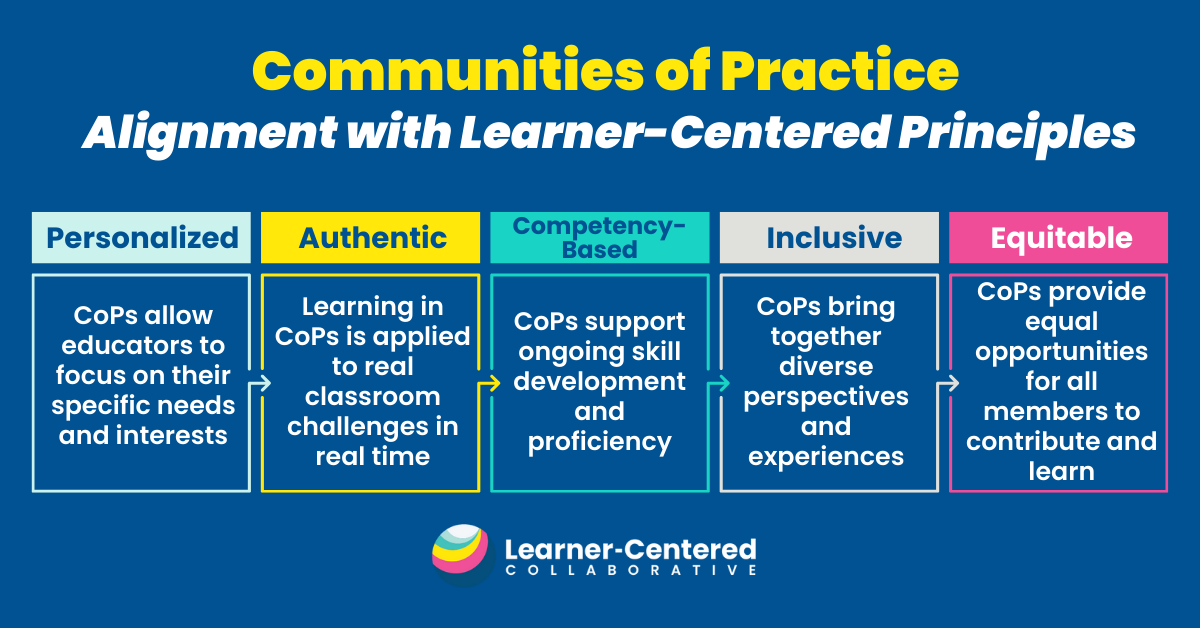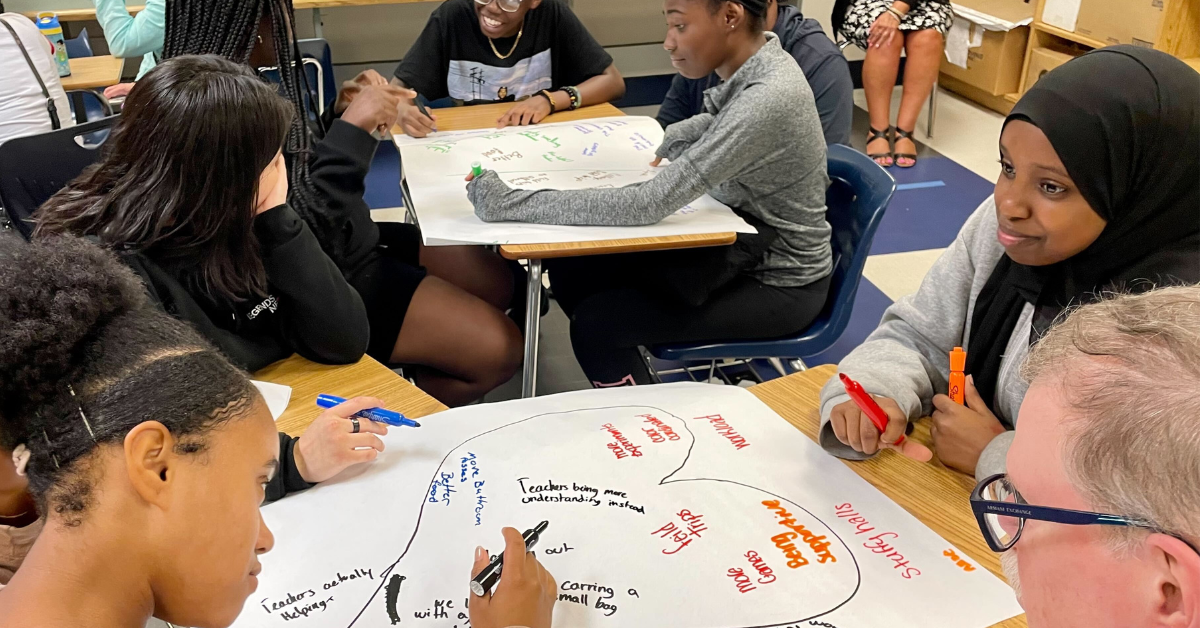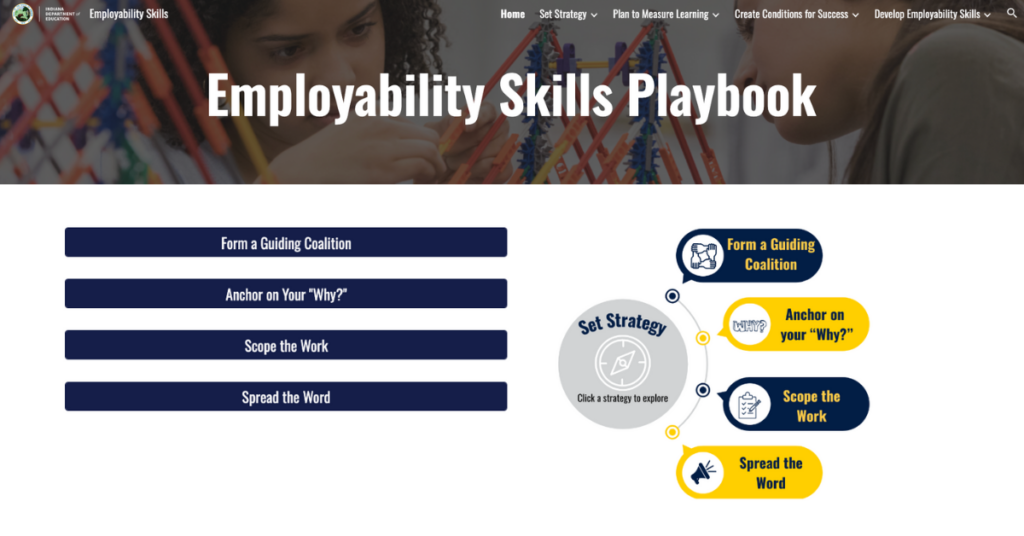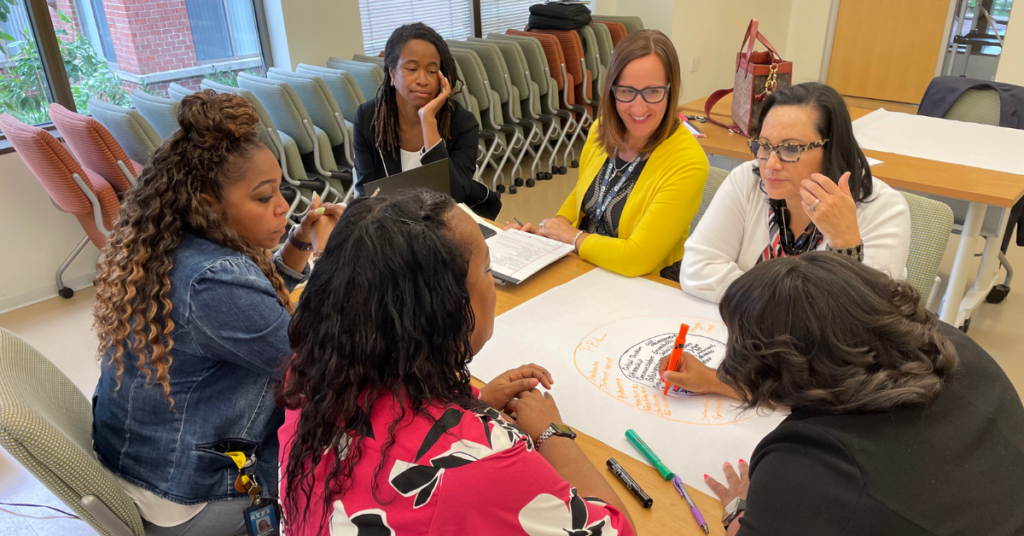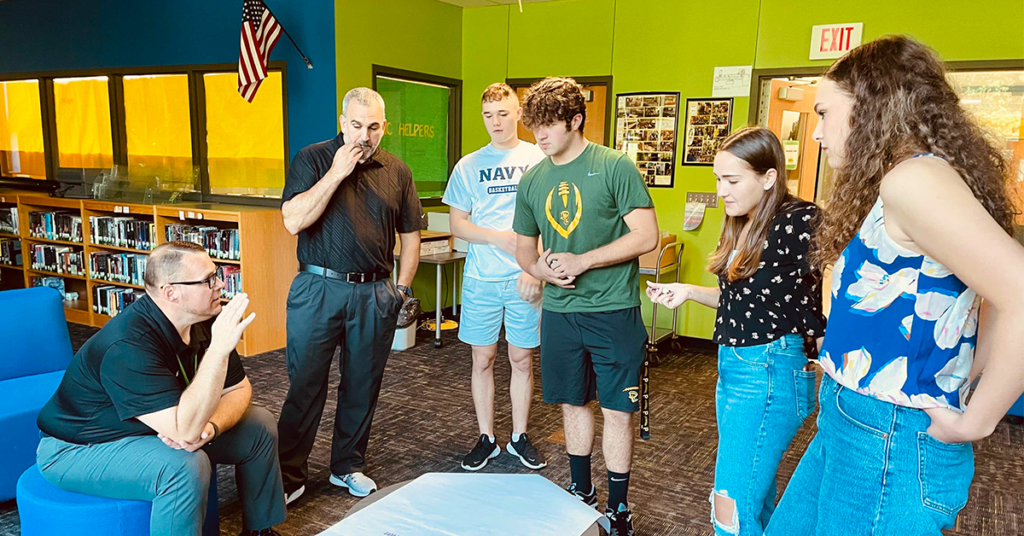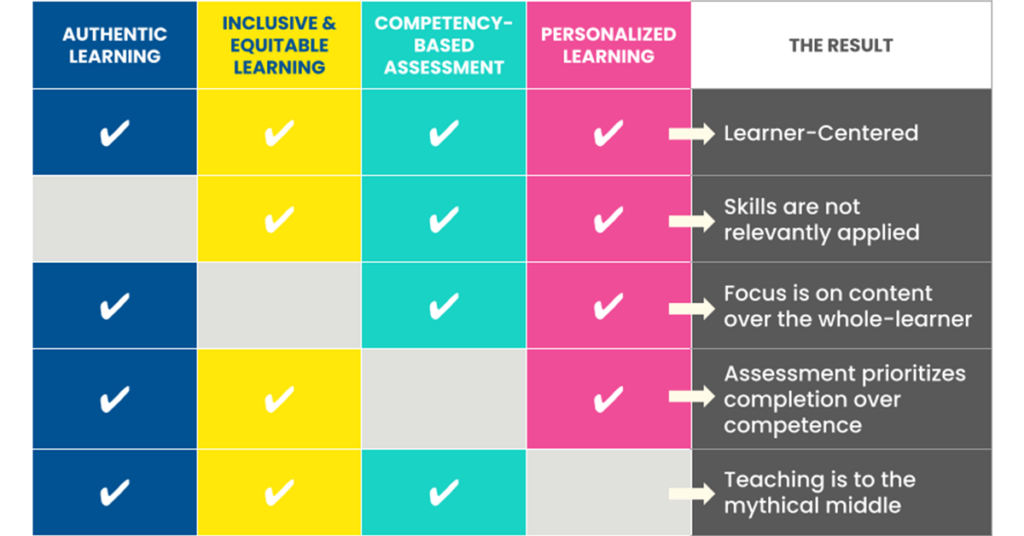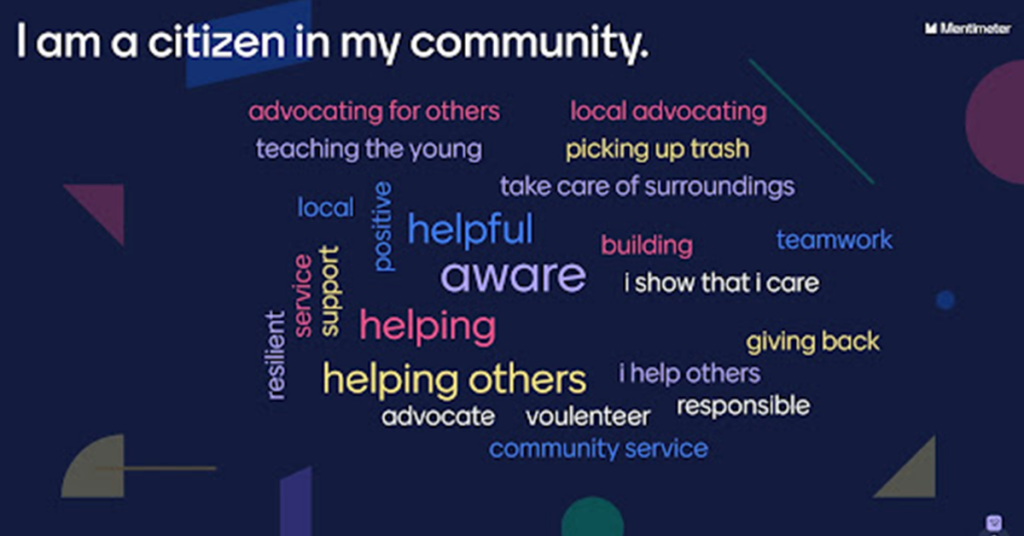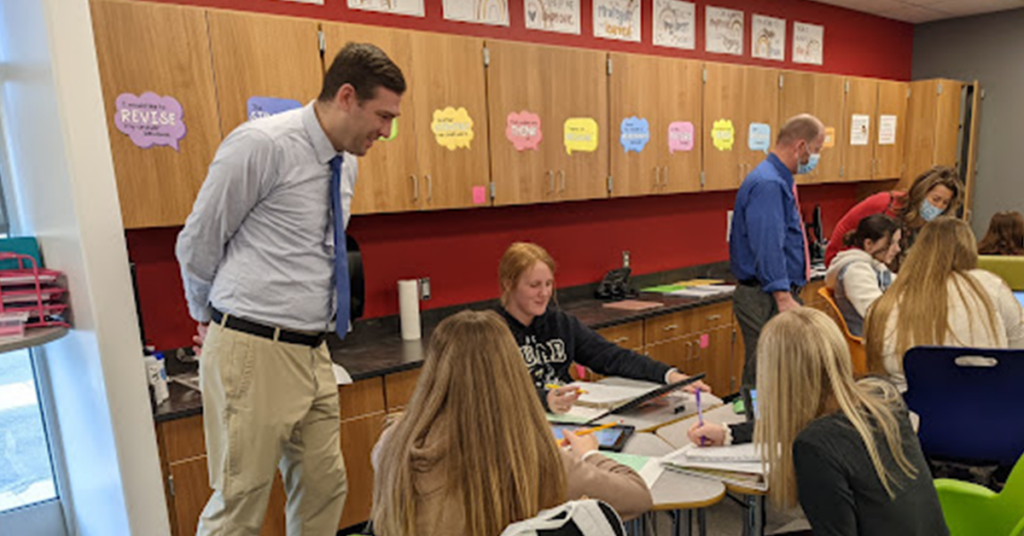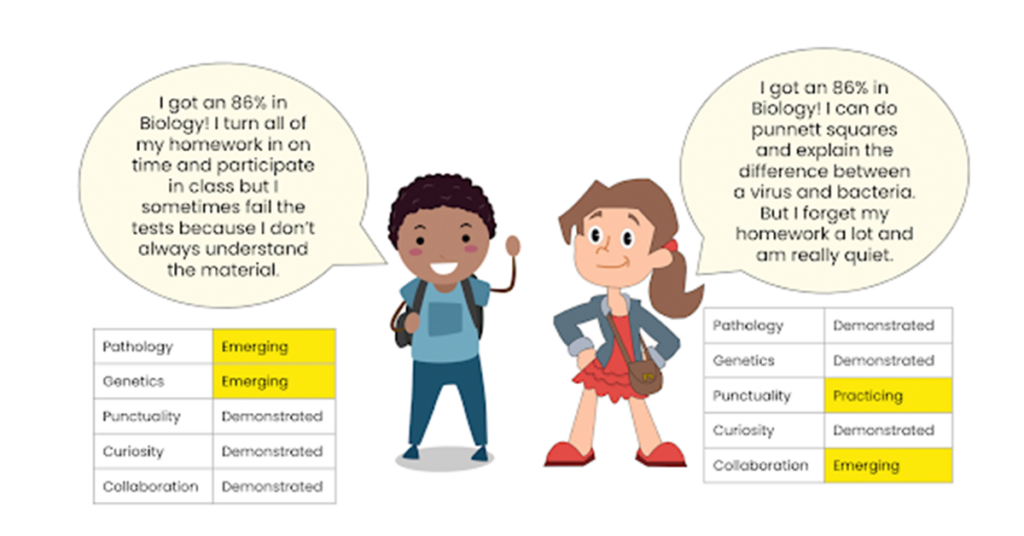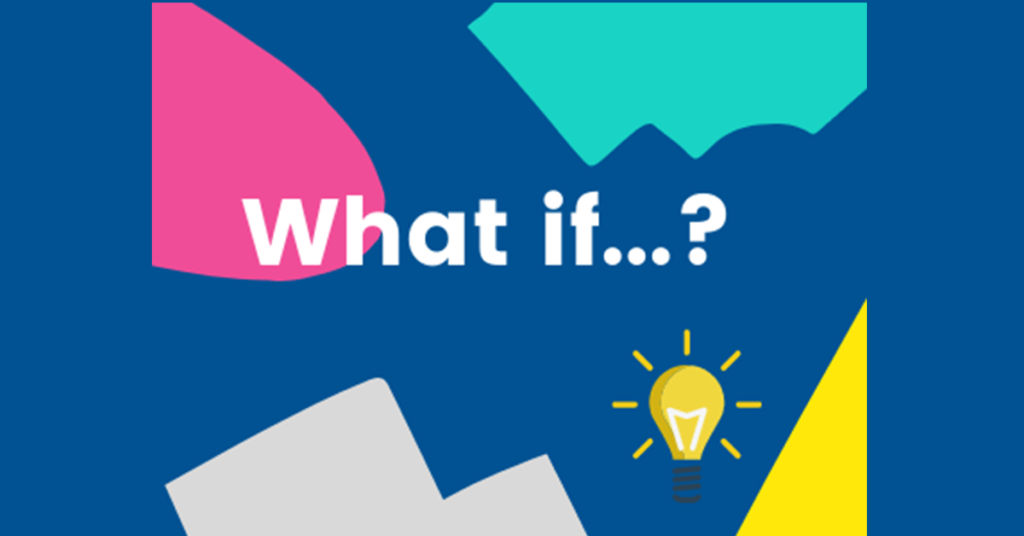Blog
Scaling Learner-Centered Innovation: It Takes a Community (of Practice)
The benefits of a Community of Practice last well past the collaborative time together. LeShae Daniel makes the case for why you should say “Yes!” to interactive, collaborative learning with colleagues.
Blog
Listen, Learn, Lead: Start with Community Engagement
You’re a leader ready to embark on a change initiative in your district. What’s your first step? A common first instinct is to create a plan and put it into practice. But before you do, we recommend you start by engaging with learners, educators, and the community to gather insights about their current experience,…
Blog
Elevating Early Innovators to Spark and Sustain Statewide Change
A Collaboration with the Indiana Department of Education and Employability Skills Indiana’s Employability Skills Initiative represents a concerted effort for students to build the practical competencies essential for thriving in today’s workforce. Through this work, Indiana’s Department of Education (INDoE) integrates vital skills such as collaboration, communication, and work ethic into the state’s educational…
Blog
Indiana’s Bold Step: Empowering Students with Employability Skills
Co-authored by: Brittany Griffin, Director of Strategic Partnerships, Learner-Centered Collaborative Lauren Cole, Vice President of Strategy and Operations, America Succeeds Eric Lerum, Senior Advisor, America Succeeds In the summer of 2022, the Indiana Department of Education (INDoE) embarked on an ambitious journey with the launch of its Employability Skills Innovation and Implementation (ESII) Grant.…
Blog
Transforming High School: A Collaborative Journey with Alexandria City Public Schools
In an era where education is evolving to meet the demands of a rapidly changing world, school districts like Alexandria City Public Schools (ACPS) are reimagining the high school experience. With a commitment to innovation and equity, ACPS embarked on a transformative journey to shape the future of education for their diverse student population.…
Blog
4 Strategies for Listening to Students to Spark Change
When thinking about how school buildings have traditionally been constructed, how bell schedules have come to be, and how academic policies have historically been authored, images of adults come to mind. Grownups have been the decision makers. As we think about what school must be for learners today and into the future—a learner-centered experience…
Blog
The 4 Elements of a Learner-Centered Experience
A learner-centered model balances authentic, personalized, competency-based, inclusive, and equitable learning experiences. Explore how and find out how to get started with incorporating these elements in practice.
Blog
Bringing Your Learner Profile to Life with Learners
Brittany Griffin shares four concrete ways to bring your Learner Profile to life with your students.
Blog
The What, Why, and How of Learning Walks
Discover the benefits of Learning Walks, how to conduct them, and why you want to make them happen in your learning community too.
Blog
Overcoming Objections to a Competency-Based Approach
Clear the way for a competency-based learning approach with these tips for overcoming common objections to mastery-based assessment.
Blog
Stepping Toward Learner-Centered Education
Brittany Griffin shares the start of her learner-centered journey in support of others ready to get started with learner-centered practices.
